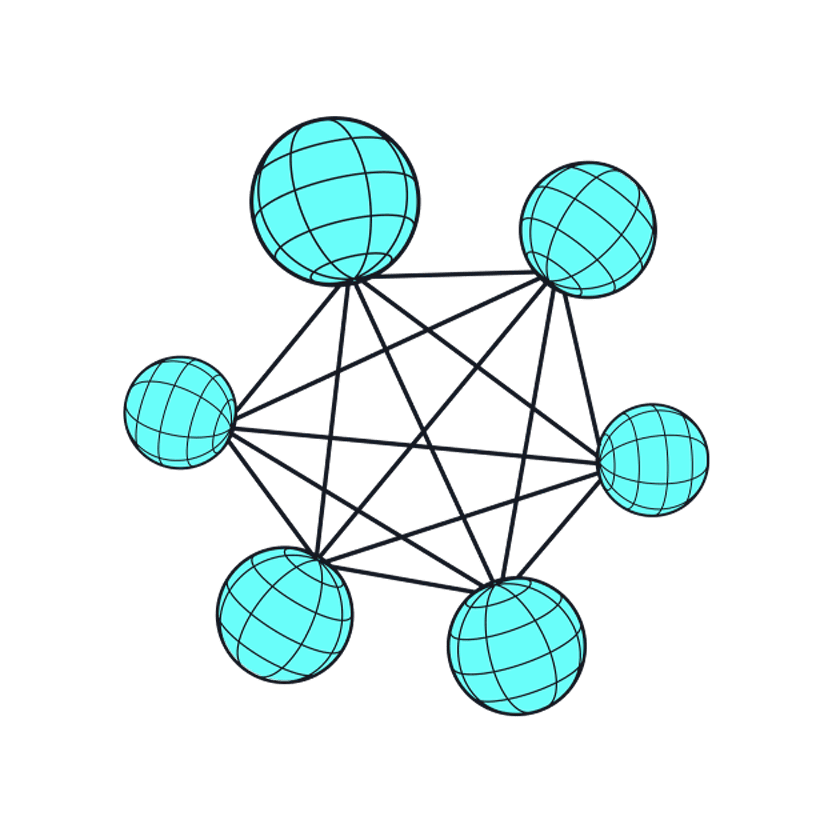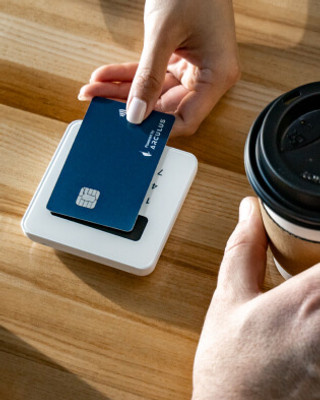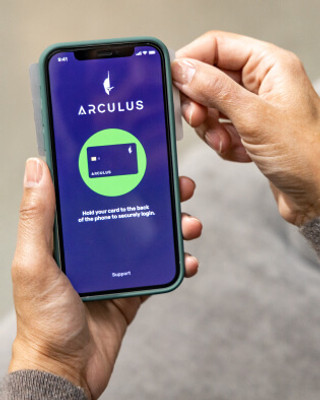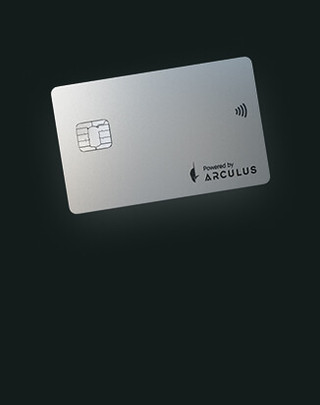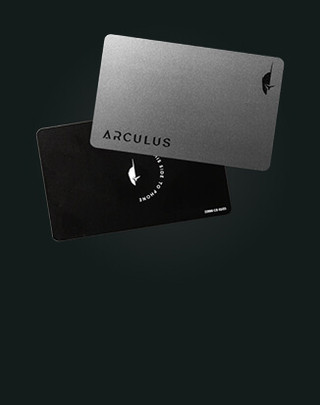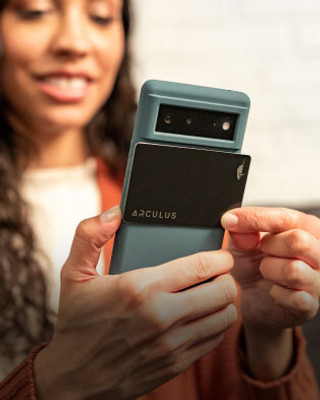Arculus Protects Your NFTs
Arculus® revolutionizes how you secure, manage, and enjoy NFTs through cutting-edge cold storage protected by 3-factor authentication. NFT tokens are one-of-a-kind, meaning they cannot be duplicated. With proper cold storage security and self-custody, owners can maintain their sole authority to dictate how their tokens are shared, displayed, sold, or traded.


Wallet Connect & MetaMask Integration
Wallet Connect & MetaMask Integration
Easily connect your Arculus Cold Storage Wallet to your preferred DeFi platforms using either WalletConnect or MetaMask.
- WalletConnect serves as a bridge, allowing decentralized applications (DApps) to communicate with your wallet upon approval.
- MetaMask, while slightly different, facilitates direct interaction by scanning QR codes to send and broadcast transactions through the Arculus App.
Both methods ensure your Arculus Card and App can efficiently manage, send, secure, store, purchase, and sell your crypto and NFTs, offering flexibility and ease of use in Web 3 and beyond.

NFTs and Self-Custody
NFTs and Self-Custody
NFTs, like other Web3 assets, have become targets for bad actors. It is important to remain vigilant to protect your NFTs. The Arculus Card generates private keys and works together with the Arculus App to allow you to securely store, manage, share, and enjoy your NFTs all while maintaining self-custody. Welcome to the Web3 future.

What is an NFT?
What is an NFT?
NFTs have been around since 2014, and most people are familiar with them in the context of digital artwork. The market for NFTs has grown to an impressive $41 billion in recent years – nearly equivalent to the total value of the entire global fine art market.* An NFT, or a non-fungible token, is a digital asset that lives on a blockchain and serves as a cryptographic record of ownership for assets such as artwork, video game items, digital real estate, and more.

How are NFTs minted?
How are NFTs minted?
Minting an NFT transforms a digital file into a digital asset that is recorded on a blockchain. When an NFT is minted to represent a real-world tangible asset, such as a physical piece of artwork or a pair of custom-designed sneakers, the asset becomes tokenized. This tokenization reduces the chance of fraud and makes exchange more efficient. Once minted, an NFT can be put into circulation to be monetized and sold through a smart contract. A smart contract automates a blockchain or ledger-based business agreement that cannot be modified once authorized. They are created when all involved parties are satisfied without additional intermediaries.
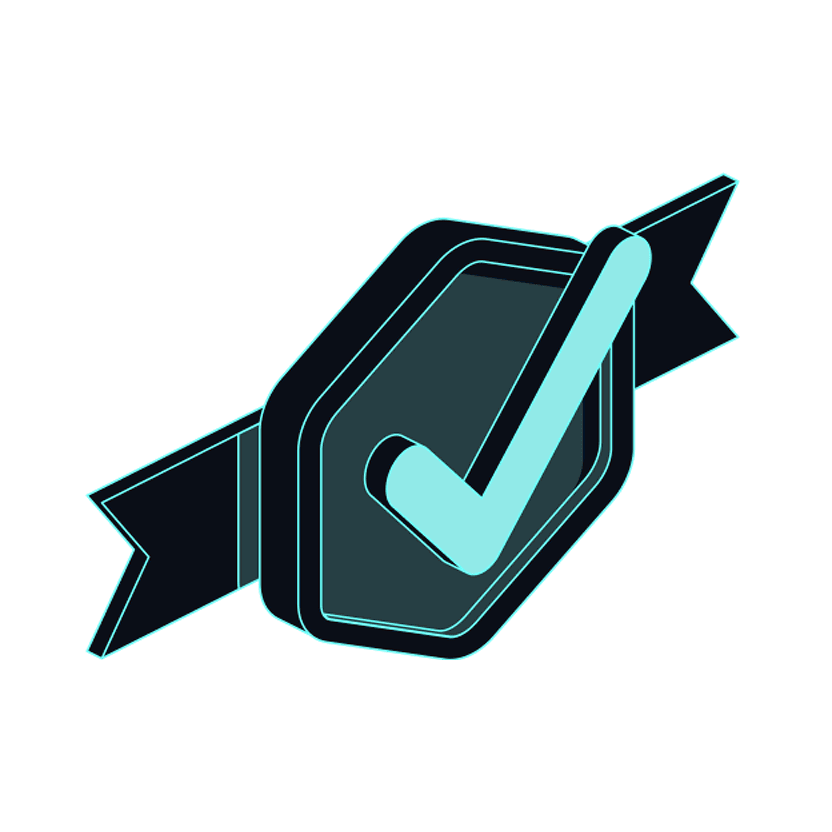
How are NFTs traded?
How are NFTs traded?
NFTs are bought and sold on marketplaces. Third party platforms come with security risks, so after purchasing your NFT on a DeFi marketplace, it’s vital to have a cold storage solution that guarantees self-custody

Why are NFTs Important?
Why are NFTs Important?
NFTs are democratizing the production and exchange of digital assets at a rapid pace by enabling independent developers, artists, creators, companies, and entrepreneurs to access global markets for goods and services, seamlessly driving broad economic growth. Because NFTs operate on a blockchain contract, which proves ownership of an asset, NFTs have endless applications in the expanding Web3-enabled future. It’s likely that we’ll soon see wider adoption of NFTs to represent ownership of successively larger real-world assets as well as identity protection as in the case of health data or key account access.

What is Web3?
What is Web3?
Web 3.0 represents the next phase in the growth and sophistication of the Internet and is a vision of a future that is built on decentralized blockchains. New and emerging Web3 technologies such as AI, machine learning, and decentralized ledgers are all foundational building blocks of a fully mature Web3 future.

What is DeFi?
What is DeFi?
DeFi stands for decentralized finance. It’s a system built on blockchain technology that has reimagined financial transactions by removing intermediaries. Today, most DeFi apps operate by way of smart contracts or programs that automate the execution of an agreement without the need for an intermediary. Rather than using a traditional bank, people can pay for goods and services using a decentralized app (DApp) designed to execute these payments. Popular DApp's include OpenSea, Uniswap, and CryptoMines. NFTs will be a fundamental feature of life in the Metaverse, allowing you to purchase and own digital goods in a virtual world, including avatars, accessories, virtual experiences, and even virtual real estate.
